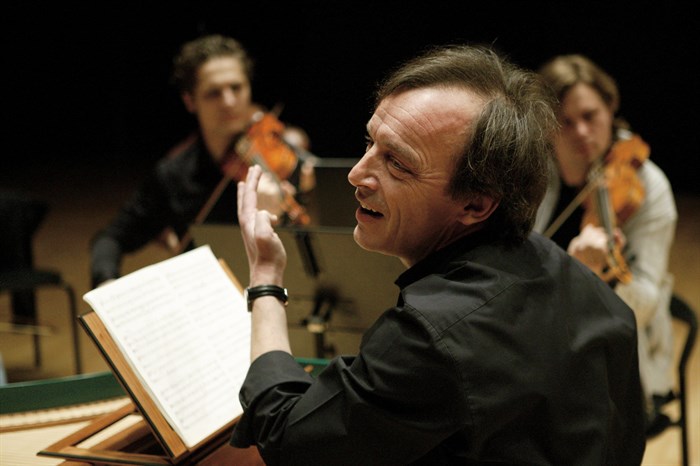léonie sonning music prize 1981
The Russian cellist Mstislav Rostropovich received the Léonie Sonning Music Prize of 100,000 Danish kroner at a concert on 9 June 1981 at the Funen Forsamlingshus in Odense. This was the first time the prize concert took place outside Copenhagen [NB INCORRECT? RUBINSTEIN 1971]. Queen Ingrid presided over the event.
The prize was presented by Professor Poul Birkelund, the Léonie Sonning Music Foundation’s chairman, who included the following words in his speech:
‘We are filled with joy at having heard a master’s interpretation of one of the great works of our time, Dmitri Shostakovich’s Cello Concerto. Both the composition and the interpretation are based on a music culture that has been rooted and developed for generations, which, regardless of all changes, will always live and enliven human lives. It was a pleasure for the Léonie Sonning Music Foundation that you, Maestro Rostropovich, chose to perform a work by the great composer of your native country. The struggle for the place of music in the human hearts of all nations continues and is taken up by the great international artists of the moment. Their artistic stance and international mission as music’s foremost envoys warrants our deepest gratitude and admiration.’
citation
The Léonie Sonning Music Prize of 100,000 Danish kroner is hereby awarded to Mstislav Rostropovich in recognition of versatile musicianship, and for personal and technically superb interpretation of the old and new works of the international cello literature.’
In his speech of thanks, Rostropovich made the following remarks:
‘My dear friends, I am speechless over the great honour, especially because I have loved your country so much for so many years. I am so proud that your country has given me this great honour. I love you. Thank you with all my heart.’
You can listen to the speech from the ceremony here:
The programme
Michail Glinka Overture to Ruslan and Ludmilla
Dmitri Shostakovich Concerto no. 1 for cello and orchestra
Carl Nielsen Symphony no. 1
Peter Tchaikovsky Variations on a rococo theme for cello and orchestra
Odense Symphony Orchestra
Conductor: Karol Stryja
Rostropovich and Denmark
In 1952 Mstislav Rostropovich played in Denmark for the first time, during an unofficial guest from the Soviet Union. In 1974 he defected to the West and then appeared several times in Denmark, not least due to his friendship with the Danish royal family. In the days leading up to the prize concert, on 4-7 June, Rostropovich led a master-class for Danish cello students at Egeskov Castle in the presence of Queen Ingrid. Her interest and insight made so great an impression on Rostropovich that he offered to give a concert in honour of King Frederik and Queen Ingrid’s Foundation. The concert took place at the Tivoli Concert Hall on 20 April 1982, during which time Rostropovich stayed as a private guest at Amalienborg. On the programme was Dvořák’s Cello Concerto, which Rostropovich played with the Royal Danish Orchestra. In the encore, Fauré’s Après un rêve, he was accompanied at the piano by Prince Henrik.
Rostropovich maintained close ties with the Danish royal family for the rest of his life. In 1984 he played a chamber concert for the royal family at Fredensborg Castle Church with the pianist Friedrich Gürtler. The same year another master-class was held at Egeskov Castle, and Rostropovich was appointed a Commander of the Dannebrog. In 1985 he played again in the Tivoli Concert Hall in aid of King Frederik and Queen Ingrid’s Foundation, this time as both soloist and conductor with the Tivoli Symphony Orchestra, and in 1990 he gave another charity concert in Copenhagen as soloist and conductor of the Danish National Symphony Orchestra, this time on the occasion of Queen Ingrid’s 80th birthday.
Among Rostropovich’s other concerts in Denmark was a chamber concert at the Tivoli Concert Hall in 1988 with violinist Anne-Sophie Mutter and viola player Bruno Giuranna and in 1991 he conducted Verdi’s Requiem with the Royal Danish Orchestra and Royal Opera Chorus. The last time he performed in Denmark was in October 2000, when the 90-year-old Queen Ingrid was in the audience (she died the following month). In 2005, Rostropovich was due to have conducted a charity concert at the Tivoli Concert Hall in memory of Queen Ingrid but withdrew due to illness.
The daily press wrote, among other things:
It was Rostropovich’s night, and he once again demonstrated that he is a conscientious musician who plays with a wonderful intensity and expressive power that cannot fail to captivate the listener. You listen with fascination to the beautiful sound of his cello, but first and foremost to the richness of expression and vitality that he evokes.
(John Christiansen, Jyllands-Posten, 11 June 1981)
And then Rostropovich acknowledged the excitement of the occasion with the Sarbande from Bach’s Suite for Solo Cello No 2, with an arch that seemed to grow several meters long, and last an eternity, an expression of infinity, prayer and thanksgiving in one, suspended from the dimensions of time and space, taking a lone voice to its limits and still conjuring a silence around it and after it.
(Hansgeorg Lenz, Information, 11 June 1981)





